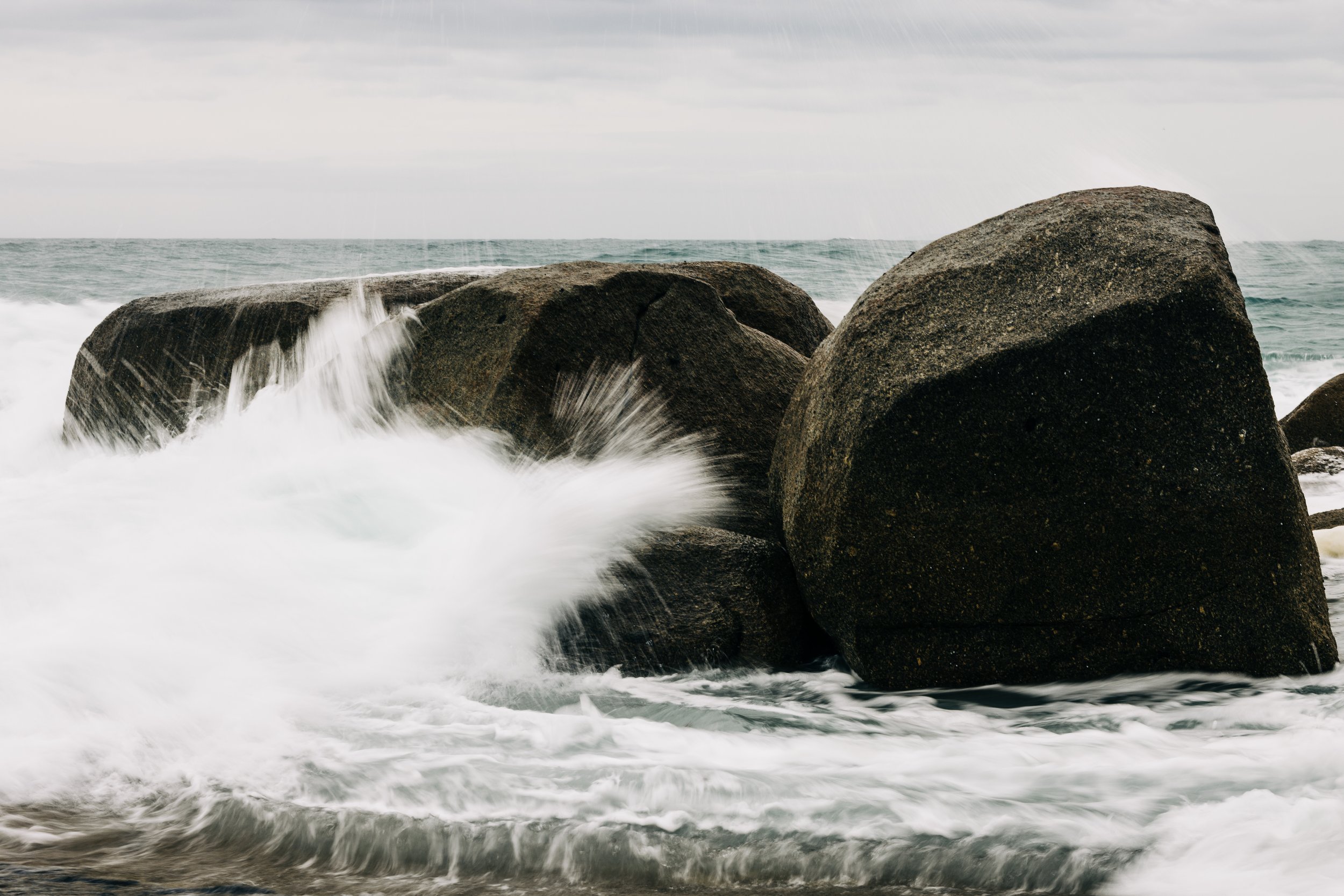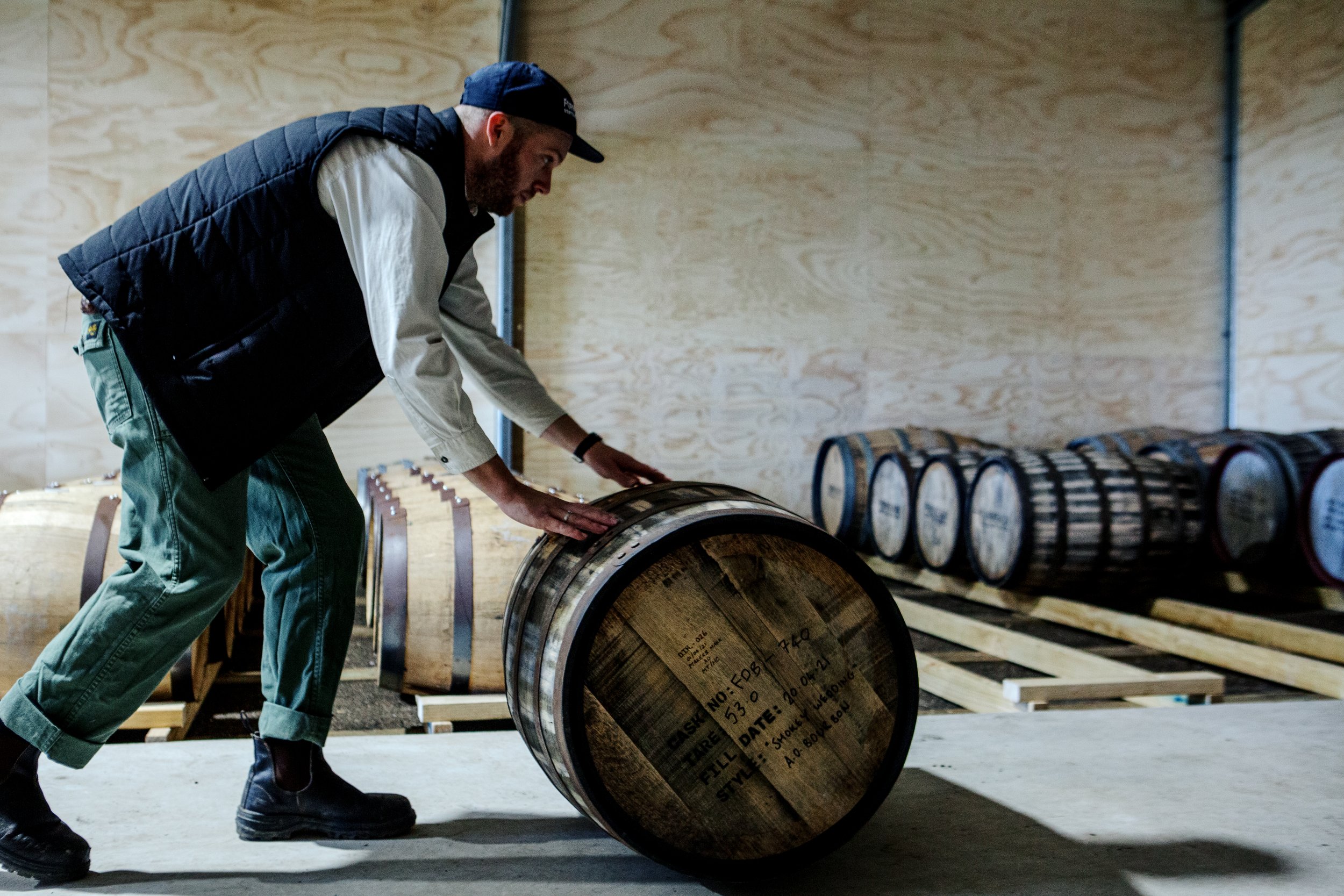
TAKE A LOOK INSIDE OUR COASTAL BOND STORE
We’ve been working hard since our stills were commissioned in September 2019, making 100-200l of new make spirit every week for our single malt whisky. All of this whisky needs to go into barrels for maturation, and depending on the size of the barrel, that can be anywhere from 2 years up to 20 years! So it’s been very exciting in the recent months to have been working on a place to store all this delicious whisky, in our new bond store. Thanks to John Riddle and his team of local builders, we’ve erected a dunnage warehouse at Wickham, our farm at Sawyers Bay.
WHAT IS A DUNNAGE WAREHOUSE?
In the world of whisky, a dunnage warehouse is one that is small, and open to the earth below the barrels. This differs to a racked warehouse which is most often a concrete and steel shed in which distilleries can fit a much larger number of casks. This style of whisky storage is centuries old, and still used by some of our favourite Scottish whisky producers such as Bruichladdich and Kilchoman. The open earth flooring will regulate temperature and let humidity into the warehouse, making a dark, musty and cool environment.
WHAT DOES IT DO FOR WHISKY?
A whisky gets a vast amount of its flavour from the barrel it’s sitting in. For example, a fortified wine cask like sherry or port will give our whisky a rich and dark fruity flavour, whereas a bourbon cask will give it a lighter, caramel and toffee influence. Because so much happens in the barrel, the environment it is sitting in is also very important. A barrel is breathing during maturation; as the temperature increases the barrels will expand, drawing the spirit into the timber, and as they cool down and contract, the spirit will be expelled from the timber, drawing from it the compounds that make up a whisky’s flavour. This interaction is good for a whisky to develop flavour, but if the barrels are heating too aggressively, there will be an excess of timber contact, and the whisky will have developed a deep oaky flavour before it has had time to truly mature in the cask. In our experience, this can lead to bitter and astringent whisky.
So generally speaking – dark and cool is beneficial for a whisky’s slow maturation, drawing on cask influence while the whisky is breathing and developing a balance of flavour. Higher humidity will also mean less evaporation, so we should see a steady but controlled change in our spirits strength, volume and, most importantly, flavour.
Time will tell!




